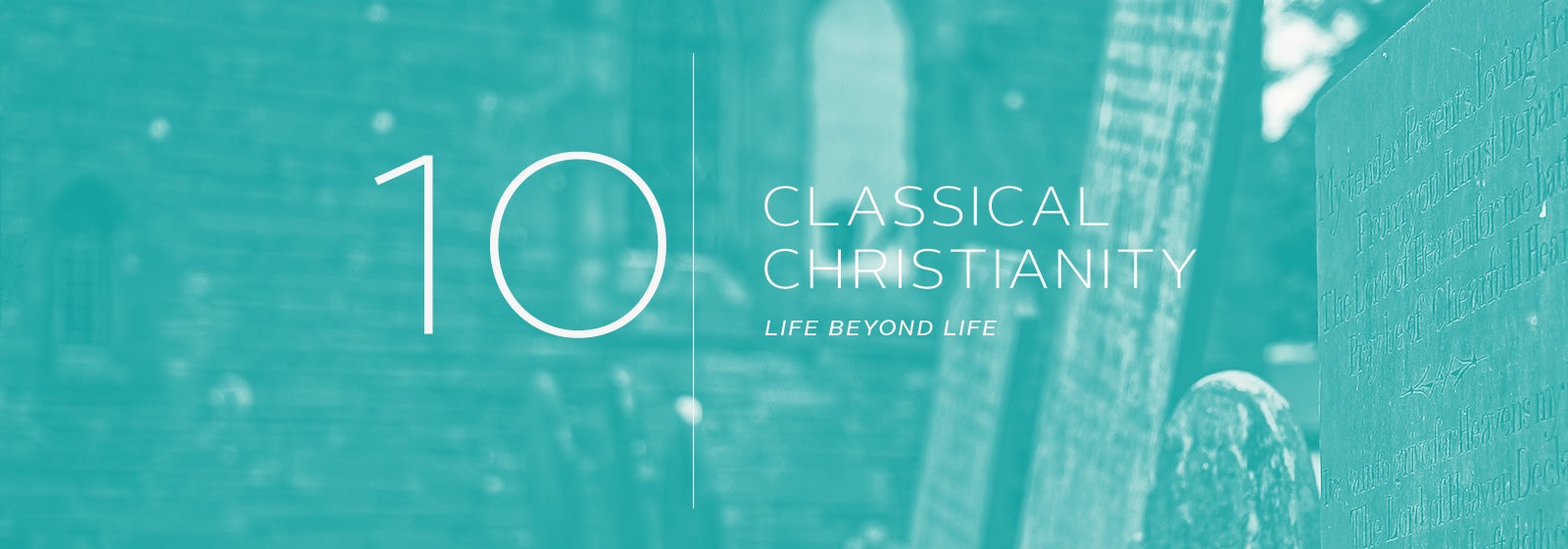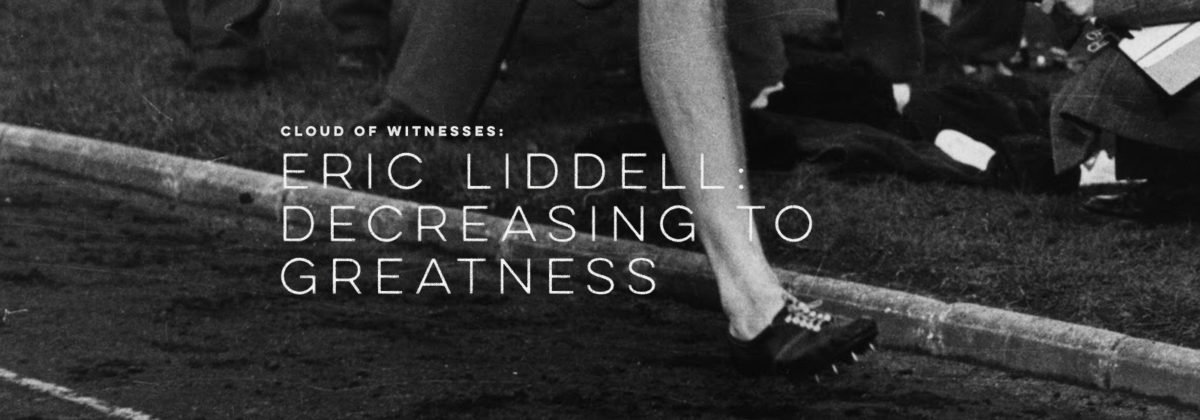Douglas Todd, the Religion Reporter for the Vancouver Sun, recently wrote an article entitled, Liberal Christianity – 10 things to know about this ‘middle way.’ In the article he claims that Liberal Christianity is the faith practiced by most mainline Protestant and even many Roman Catholic Christians in North America. He outlines 10 points of Liberal Christian belief on topics ranging as widely as Jesus, sex, social justice and death. This current series, Classical Christianity – 10 things to know about this ‘ancient way,’ is our response to his article. Although there are some things that Classical Christianity can affirm in each of Todd’s 10 points, there is also much that must be added to, or rejected completely.
Today, we will continue with the tenth and last point of Liberal Christianity: Death and the open beyond. Douglas Todd writes:
This might shock those who assume the main reason Christians become Christian, and embrace the Easter account of the resurrection of Jesus, is to be guaranteed a spot in heaven. But belief in heaven, or otherwise, is not a deal-breaker for entry into this camp. Some liberal Christians don’t think it is possible to have individual consciousness after death. That said, most liberal Christians appreciate how the story of Jesus’ resurrection exemplifies how “death is not the final word.” Even if they don’t believe Jesus physically rose from the grave, they buy into the metaphor. They accept Jesus’ followers had mystical visions of him after his death and that the love people show on earth lives on eternally after their body dies.
The final pillar in Todd’s inventory of Liberal Christianity turns to the question of death and the hope of heaven. When I read his statement, an idea from Rob Bell’s Love Wins came to mind. Bell contends that sometimes those who fixate on “going to heaven” after they die “talk the least about bringing heaven to earth right now.” In other words, a preoccupation with getting into heaven after death can vastly overshadow the benefits of knowing God in this present life. Todd seems to be familiar with this troubling phenomenon. I share his distaste for it.
The idea that believing in Christ and following Him can be reduced to a “golden ticket” into a serene afterlife is a perversion of the witness of Scripture and the Christian tradition. It is also a dangerous idea. Such an outlook adds fuel to a series of charges against Christianity that [French philosopher] Jean Jacques Rousseau, among others, brought against the church. Rousseau argued that Christians could not be good citizens. Their longing for heaven was “actively opposed to the social spirit.” Their gaze upwards divided their loyalties. Accordingly, the Christian—with anticipation of heaven—could never be “simultaneously pious and a good citizen.”
Its not hard to recognize the logic of Rousseau’s assessment. But it’s misguided. And so is Liberal Christianity’s willingness to jettison the doctrine of heaven and the affirmation of Christ’s bodily resurrection upon which it stands.
Classical Christianity has long maintained the reality of life beyond this life. This has is attested in hundreds of ways, most notably (even if puzzling to modernity!) in the veneration of the saints. The fact that Orthodox and Catholic Christians regard Christians from the past as living and active, even if not bodily present, presupposes life beyond this life. When Liberal Christianity relativizes the longstanding doctrine of bodily resurrection, it diverges with Classical Christianity. It departs from theological convictions held by myriads of Christians throughout the centuries. East and West. Orthodox and Latin. Catholic and Protestant. Ancient and Modern. It flies in the face of the clear and recurrent witness of the New Testament.
This does not mean that Classical Christianity agrees exactly on the conception of heaven. There has not always been consensus in imagining the nature of eternal life. N.T. Wright’s timely study on the New Testament view of life after this life (Surprised By Hope) demonstrates this. Certain streams of Christian thought have developed ideas about heaven that have correspond only minimally with the witness of Scripture. But in their anticipation that this life is not all there is, they have been squarely Christian—and not in a sectarian sense!—in their attitude.
Classical Christianity affirms and emphasizes the eventual consummation of God’s Kingdom. It yearns for heaven.
Christians have not always been entirely comfortable with the hope of heaven, and the trust in Christ’s bodily resurrection that animates it. Paul’s first letter to the Corinthian Church (ch. 15) suggests that this is nothing new. What is new, however, is Liberal Christianity’s response to our incredulity of life after death. What has long been cherished in faith as a hopeful reality is hastily put aside as metaphorical description or, even worse, as psychological crutch.
Is there a price to pay for this tradeoff? Yes.
Contrary to Rousseau, the doctrine of heaven does not in fact make Christians the worst of citizens. It does not make them “no earthly good.” Nor does it invite them to fixate on the next life. Along these lines, Christoph Cardinal Schönborn, in his insightful reflection on heaven, reminds us that “true responsibility for life here on earth is generated only by the hope in life after death.” What does this mean? For starters, because Classical Christianity knows that there is life beyond this life, where God will vindicate and perfect his people, the Christian can sacrificially live for the benefit of others in the present age. The Christian does not live in a self-absorbed manner. She is not concerned to enjoy all the good things of this world (often at the expense of others!) in a way which corresponds to the age-old mantra ‘eat, drink, and be merry, for tomorrow we die’. To the contrary, a robust doctrine of heaven—the assurance that this life is not all there is—enables the Christian to be the best citizen. The type who forgoes personal interest and entitlement because in due course, she will exist in a place devoid of want and lack.
To relativize the promise and hope of heaven is to undermine the capacity to live the best possible life in the present age. A life devoted to the service and love of neighbour. Service that is sometimes costly and requires immense self-denial.
Classical Christianity affirms and emphasizes the eventual consummation of God’s Kingdom. It yearns for heaven. It looks for that moment when time will give way to eternity. It anticipates that this will awaken those who have fallen asleep and come upon those who have not. This doctrine is a source of profound freedom and courage in the service of others. We have but to think of Perpetua, a 2nd century martyr who refused to renounce Christ. Her fearlessness spoke of a God who was greater than the Roman Empire. She knew that her life was not over when her earthly body was consumed by the beasts. Or we could recall the example of Dietrich Bonhoeffer. Moments before his execution at the hands of the Nazis, he spoke these final words: “This is the end. For me, the beginning of life.”
If life beyond this life and the resurrection of Christ is but a pleasant and fanciful idea, I worry. I fear that Christian faith and the way of life it generates will be incapable of meeting the summons to follow Christ.




